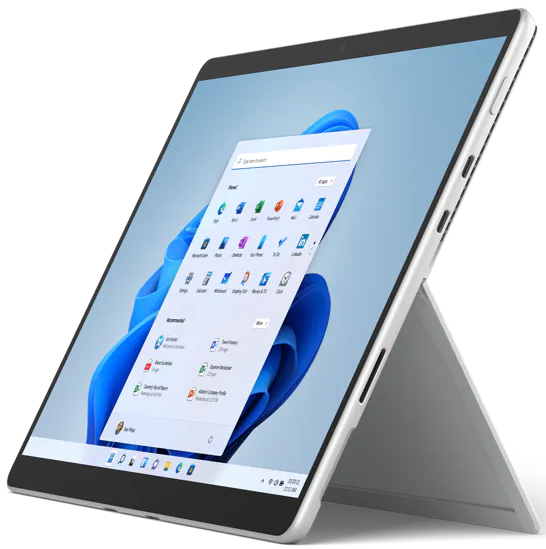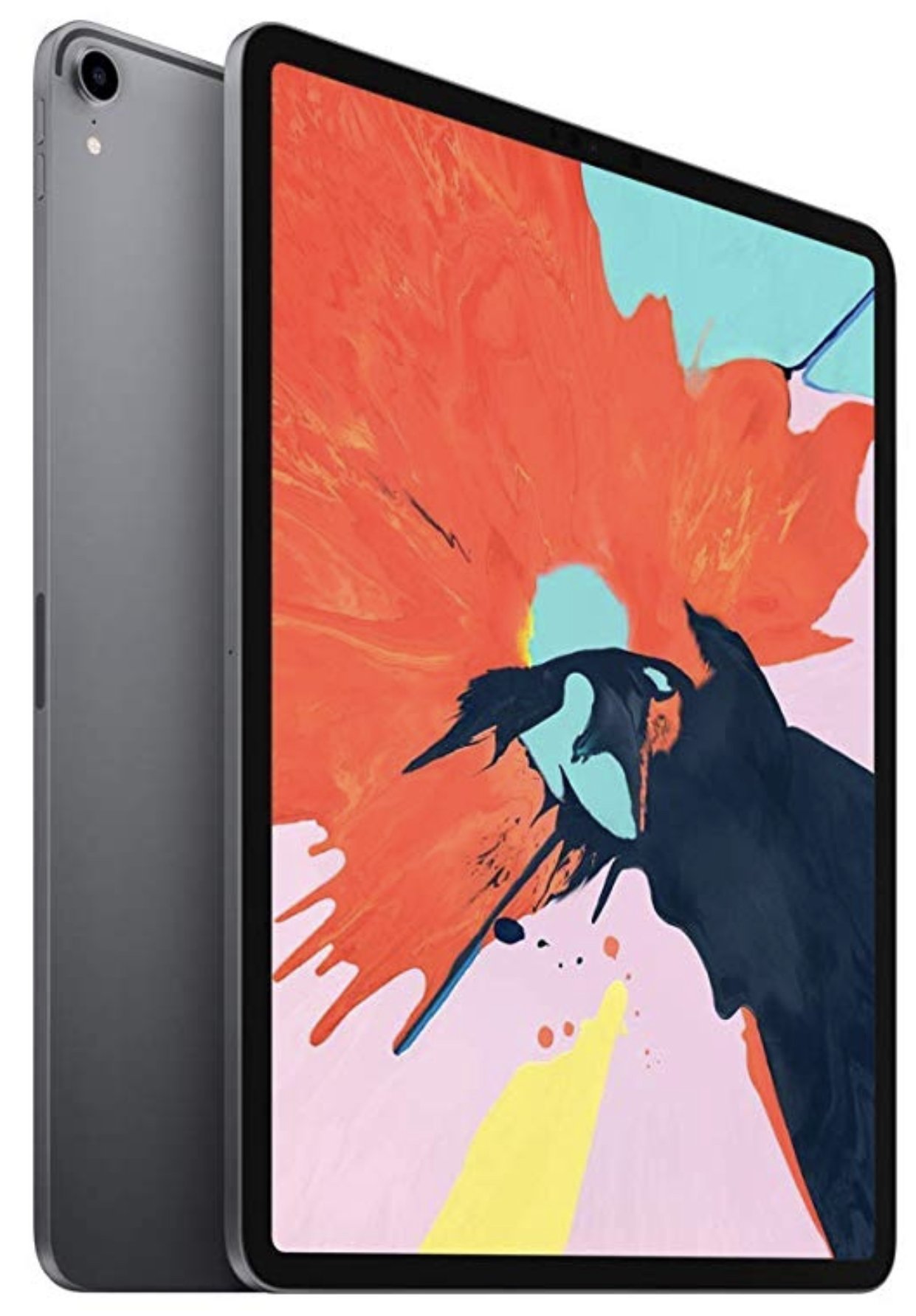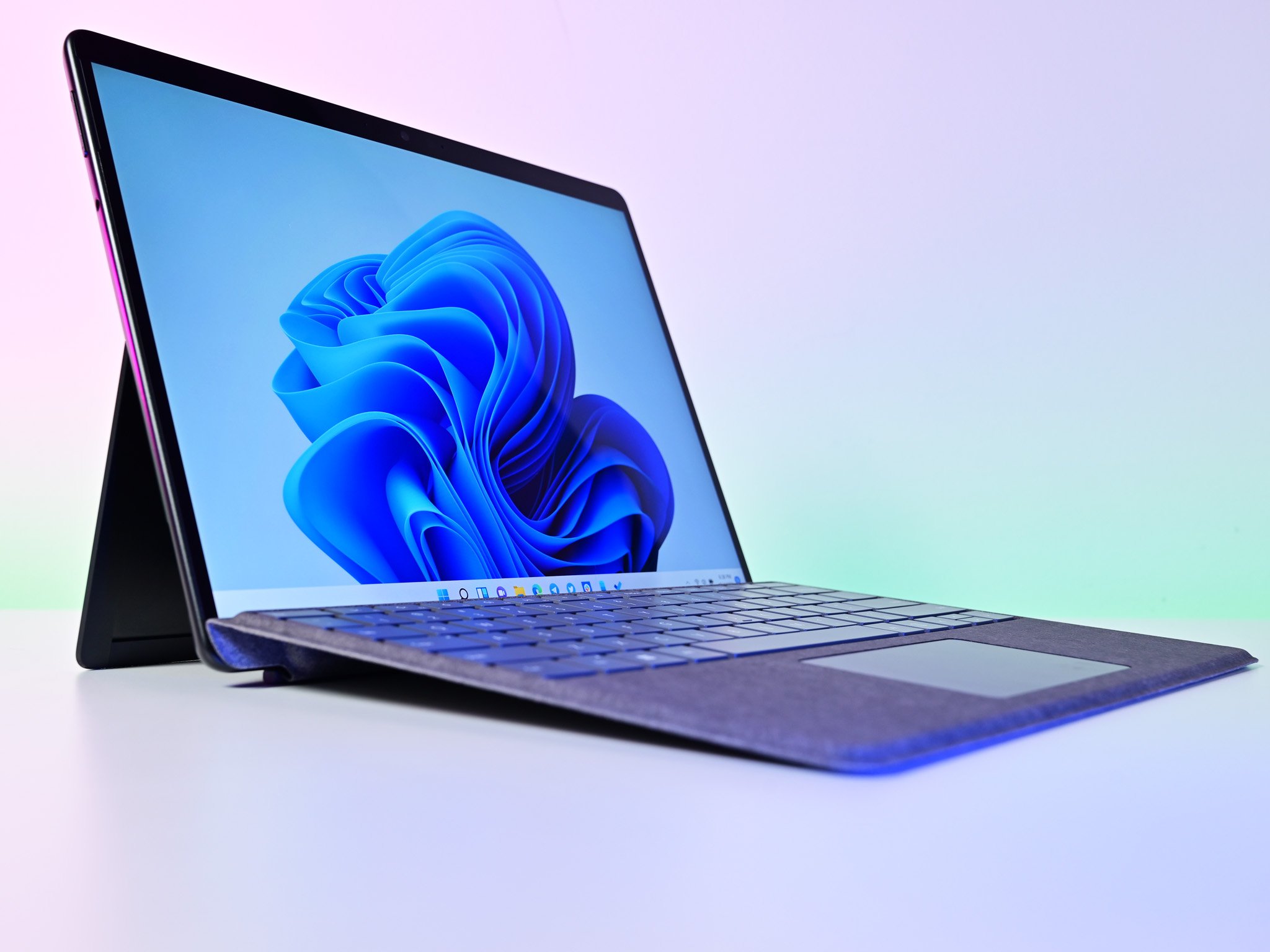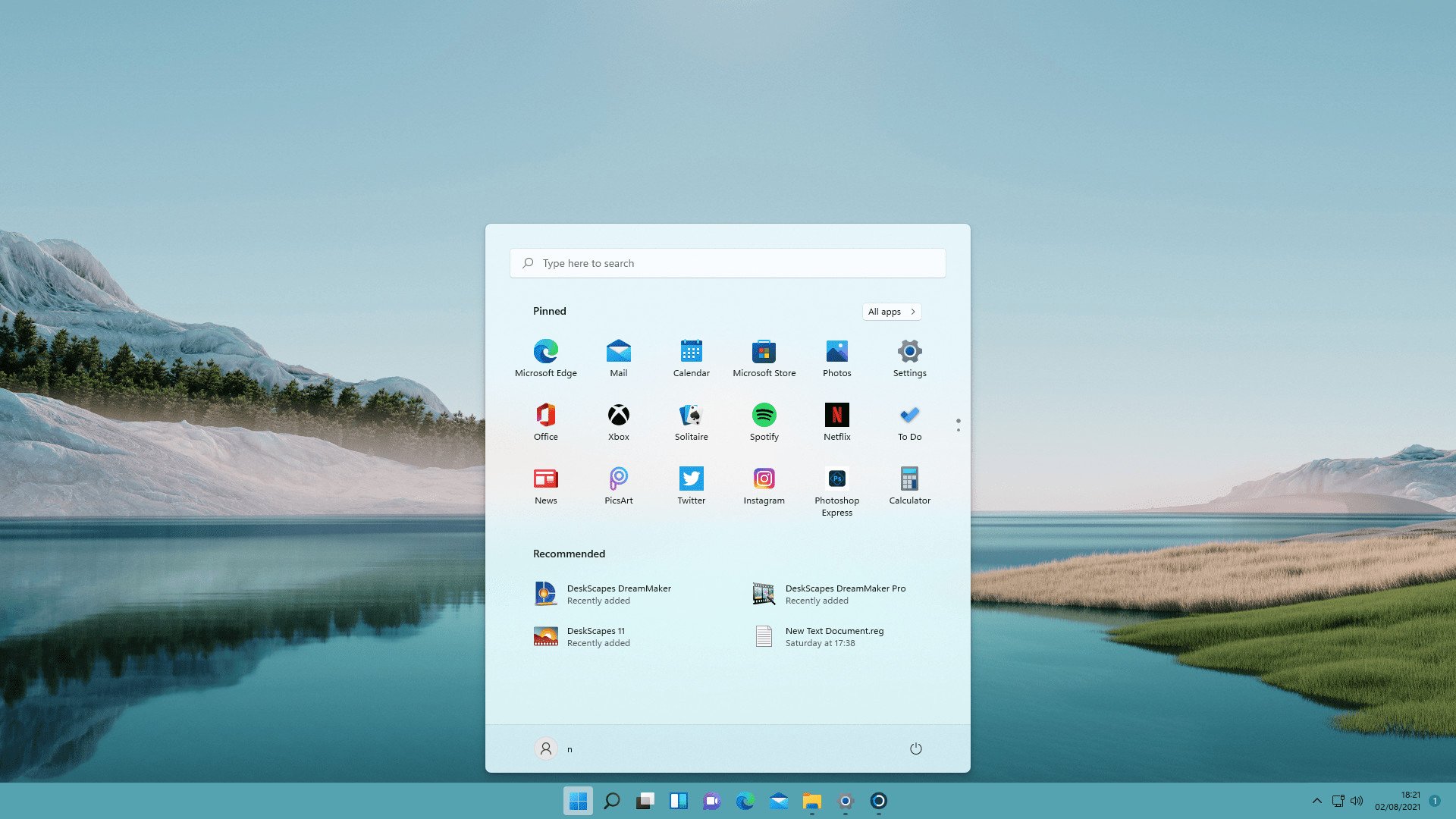Surface Pro 8 vs. iPad Pro

Productivity machine
The Surface Pro 8 is a great 2-in-1, which provides an excellent laptop experience and passable tablet one. It's designed for productivity and creativity first and foremost. It's a fine tablet, but it's no iPad Pro.
Pros
- Versatile design
- Excellent keyboard accessory
- Great laptop experience
Cons
- Not a great tablet
- Not as powerful

Consumption device
The iPad Pro puts consumption and ease of use above everything else. It's the best tablet you can buy, but that's at the expense of it also being the best at laptop tasks. It's a fine laptop, but it's no Surface Pro.
Pros
- Excellent tablet experience
- Best display on a tablet
- Minimal, simplistic design
Cons
- Not a great laptop
- Only one USB-C port
On paper, the Surface Pro 8 and iPad Pro come from the same form factor family, and are direct competitors with each other. But, if you take a closer look at each, the Surface Pro 8 and iPad Pro actually couldn't be more different. They're both 2-in-1 tablets, but the way they approach the form factor is different. One focuses on productivity and versatility, whereas the other focuses on consumption and ease of use. One is a better laptop, the other a better tablet.
Be sure to check out our list of best Windows tablets too.
Surface Pro 8 vs. iPad Pro: Specs
The Surface Pro 8 and iPad Pro are comparable in the specs department. While the processor in the iPad is more powerful on paper, this is something you're not really going to notice a difference with between the two. The iPad is more energy efficient, meaning you'll get better battery life out of the iPad, but the Surface Pro 8 has a bigger, sharper screen and subjectively nicer design.
| Header Cell - Column 0 | Surface Pro 8 | iPad Pro |
|---|---|---|
| OS | Windows 11 | iPadOS 15 |
| Processor | 11th Gen Intel Core i3-1115G4 Core i5-1145G7 Core i7-1185G7 | Apple M1 |
| RAM | 8GB, 16GB, 32GB | 8GB, 16GB |
| Storage | 128GB, 256GB, 512GB, 1TB | 128GB, 256GB, 512GB, 1TB, 2TB |
| Display | 13 inches 2880x1920 267 PPI 3:2 aspect ratio Up to 120Hz (60Hz default) Touch | 11 inches (2388x1668) 264PPI 12.9 inches (2732x2048) 264PPI Pro Motion 120Hz Touch |
| Ports | 2x Thunderbolt 4 USB-C Surface Connect 3.5mm headphone jack | 1x Thunderbolt 4 USB-C |
| Audio | Dual-speaker audio | Four-speaker audio |
| Connectivity | Wi-Fi 6 Bluetooth 5.1 Snapdragon X20 LTE | Wi-Fi 6 Bluetooth 5.0 5G/LTE |
| Keyboard | Surface Pro Keyboard | Magic Keyboard |
| Pen | Surface Slim Pen 2 | Apple Pencil 2 |
| Security | Windows Hello | Face ID |
| Battery | Up to 16 hours | Up to 10 hours |
| Dimensions | 11.3 x 8.2 x 0.37 inches (287mm x 208.3mm x 9.4mm) | 11-inch 9.74 x 7.02 x 0.13 inches (247.6mm x 178.5mm x 5.9mm) 12.9-inch 11.04 x 8.46 x 0.25 inches (280.6mm x 214.9mm x 6.4mm) |
| Weight | 1.96 pounds (891g) | 11-inch Wi-Fi: 1.03 pounds (466g) 11-inch LTE: 1.03 pounds (468g) 12.9-inch Wi-Fi: 1.5 pounds (682g) 12.9-inch LTE: 1.51 pounds (684g) |
| Color | Platinum Graphite | Silver Space Grey |
The iPad Pro features Mini LED technology for its display, which provides more contrast with deeper blacks, which makes the picture really pop. The Surface Pro 8 features a normal IPS display, which makes the iPad Pro's display the best choice for photo editing or movie watching.
Surface Pro 8 vs. iPad Pro: Design

The designs of both the iPad Pro and Surface Pro 8 are similar, yet different. The Surface Pro 8 features a built-in kickstand, which can prove super handy to have if you want to watch a movie and don't want to hold the device the whole time. It's also what makes the Surface Pro 8 a great laptop, as it provides a much sturdier experience compared to when the "stand" is built into the keyboard accessory.
The iPad Pro features a minimalist and simplistic design, which looks fantastic. It has rounded corners on the display, four speaker grills flanking the top and bottom sides, and even bezels around the display. Both devices feature an aluminum chassis, and are relatively thin. The volume and power buttons around each device are also nice and clicky, adding to the overall premium feel of the devices.
Both devices feature facial unlock, with the Surface Pro 8 featuring Windows Hello and the iPad Pro featuring Face ID. Both are equally secure and very fast. The Surface Pro 8 features a Type Cover connector with magnets along the bottom for adding an external keyboard accessory. The iPad Pro features a connector on the back, paired with magnets that allow you to connect a Magic Keyboard down the line as well.
All the latest news, reviews, and guides for Windows and Xbox diehards.
Surface Pro 8 vs. iPad Pro: Keyboard

The keyboard accessories for these devices might be what makes or breaks either one of these products for you. The Surface Pro 8 is compatible with Microsoft's Type Cover accessory, which protects the display when closed, and provides a full keyboard and trackpad experience when open. The keyboard itself has magnets that allow you to lift the keyboard up for an even more sturdy and comfortable typing experience too.
The iPad Pro has the Magic Keyboard, which is much more of a "case" and less of a cover. You dock the iPad Pro into the case using magnets, and then the device can be opened and closed like a laptop. The keyboard experience is small, with the trackpad especially being slightly short in regard to height. The keyboard lays flat, as there are no magnets that allow you to prop it up for a more comfortable typing experience.
In our testing, we'd say the Type Cover for the Surface Pro 8 is a more comfortable laptop experience, especially when on a lap. The Magic Keyboard is too rigid and not adjustable enough to be comfortable in every position. Thanks to the Surface Pro 8's kickstand, you can adjust the angle of the device and keyboard to any degree you like. The same cannot be done with Apple's iPad Pro and the Magic Keyboard.
Surface Pro 8 vs. iPad Pro: OS

The biggest difference between these two devices is with the OS they both run. The Surface Pro 8 features a fully fledged PC OS, designed for productivity and work-related tasks. The iPad Pro runs iPadOS, an upscaled version of the same OS that runs on the iPhone, which means it's much more simplistic, but designed for touch first and foremost.
This is ultimately what you should be basing your purchasing decision on. iPadOS is a great tablet-first OS, providing a clean and simplistic touch-first experience, but at the expense of a less robust laptop or productivity experience, even with the Magic Keyboard attached. On the flipside, Windows is a great laptop and productivity experience, but at the expense of a less robust touch-first and simplistic UX experience.
So, it comes down to what you need. Do you want something that's good at being a laptop, or do you want something that's good at being a tablet? If you want the best laptop, get the Surface Pro 8. If you want the best tablet, get the iPad Pro. If you want something that can do both, either choice is great, just make sure you know which is the best for what before deciding.

The 2-in-1 to beat
This is the 2-in-1 to beat. With an excellent Type Cover accessory and built-in kickstand, the Surface Pro 8 is the best 2-in-1 for both laptop and tablet tasks. That said, it's definitely better at one of those things. It's a great laptop, and an OK tablet.

The tablet to beat
The iPad Pro is the tablet to beat. With a beautiful display and touch-first OS, you won't find anything better. It also supports external keyboard accessories such as the Magic Keyboard that turn it into a laptop, but it's not going to be the best laptop you can find.

